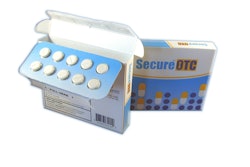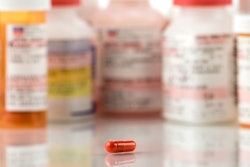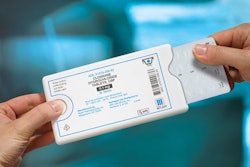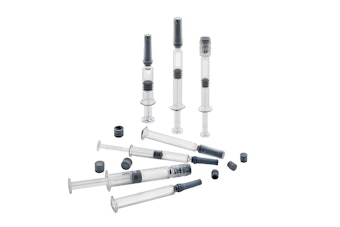Flu seasons can differ in timing, duration, or severity. This year, there is a new and very different influenza virus causing illness called 2009 H1N1 flu. CDC expects both 2009 H1N1 flu and seasonal flu to cause illness, hospital stays, and deaths this season. However, there are important steps you can take to protect yourself.
What actions should people take to protect themselves from flu?
The Centers for Disease Control and Prevention (CDC) recommends a yearly seasonal flu vaccine as the first and most important step in protecting against seasonal flu. While 2009 H1N1 is likely to be the most common flu virus this season, CDC expects that regular seasonal flu viruses will cause illness as well.
According to Dr. Anthony Fiore in CDC's Influenza Division, "Anyone who wants to reduce their chances of getting seasonal flu should get vaccinated. It's the best way to protect yourself from influenza."
This year, a separate vaccine has been made to protect against 2009 H1N1 flu. The H1N1 monvalent flu vaccine is produced in the same way as seasonal flu vaccine. CDC has recommendations on who should get vaccinated with each vaccine this season. Ask your doctor about flu vaccination.
While getting your flu vaccine is the most important step in protecting against flu, there are also everyday preventive actions you can take. Wash your hands often with soap and water, especially after you cough or sneeze. If soap and water are not available, use an alcohol-based hand rub. Cover your nose and mouth with a tissue if you cough or sneeze, and be sure to throw the tissue in the trash after you use it. Avoid touching your eyes, nose or mouth. Germs spread this way.
If you get sick with flu, CDC recommends you stay home from school or work and limit contact with others to keep from infecting them. You should stay home 24 hours after your fever has gone away (without the use of fever-reducing medicines).
If you get seasonal or 2009 H1N1 flu, antiviral drugs can treat the flu. Antiviral drugs are prescription medicines (pills, liquid or an inhaled powder) that fight against the flu by keeping flu viruses from reproducing in your body. The priority use for antiviral drugs this season is to treat people who are very sick (hospitalized) or people or are sick with flu-like symptoms and who are at increased risk for serious flu complications, such as pregnant women, very young children, people 65 years and older and anyone with certain chronic health conditions.
Antiviral drugs work best if started withing two days of getting sick and must be prescribed by a health care provider. CDC guidance for health care professionals on the use of antiviral medications can be found at http://www.cdc.gov/h1n1flu/recommnedations.htm.
What actions should people take to protect themselves from flu?
The Centers for Disease Control and Prevention (CDC) recommends a yearly seasonal flu vaccine as the first and most important step in protecting against seasonal flu. While 2009 H1N1 is likely to be the most common flu virus this season, CDC expects that regular seasonal flu viruses will cause illness as well.
According to Dr. Anthony Fiore in CDC's Influenza Division, "Anyone who wants to reduce their chances of getting seasonal flu should get vaccinated. It's the best way to protect yourself from influenza."
This year, a separate vaccine has been made to protect against 2009 H1N1 flu. The H1N1 monvalent flu vaccine is produced in the same way as seasonal flu vaccine. CDC has recommendations on who should get vaccinated with each vaccine this season. Ask your doctor about flu vaccination.
While getting your flu vaccine is the most important step in protecting against flu, there are also everyday preventive actions you can take. Wash your hands often with soap and water, especially after you cough or sneeze. If soap and water are not available, use an alcohol-based hand rub. Cover your nose and mouth with a tissue if you cough or sneeze, and be sure to throw the tissue in the trash after you use it. Avoid touching your eyes, nose or mouth. Germs spread this way.
If you get sick with flu, CDC recommends you stay home from school or work and limit contact with others to keep from infecting them. You should stay home 24 hours after your fever has gone away (without the use of fever-reducing medicines).
If you get seasonal or 2009 H1N1 flu, antiviral drugs can treat the flu. Antiviral drugs are prescription medicines (pills, liquid or an inhaled powder) that fight against the flu by keeping flu viruses from reproducing in your body. The priority use for antiviral drugs this season is to treat people who are very sick (hospitalized) or people or are sick with flu-like symptoms and who are at increased risk for serious flu complications, such as pregnant women, very young children, people 65 years and older and anyone with certain chronic health conditions.
Antiviral drugs work best if started withing two days of getting sick and must be prescribed by a health care provider. CDC guidance for health care professionals on the use of antiviral medications can be found at http://www.cdc.gov/h1n1flu/recommnedations.htm.
Companies in this press-release






















